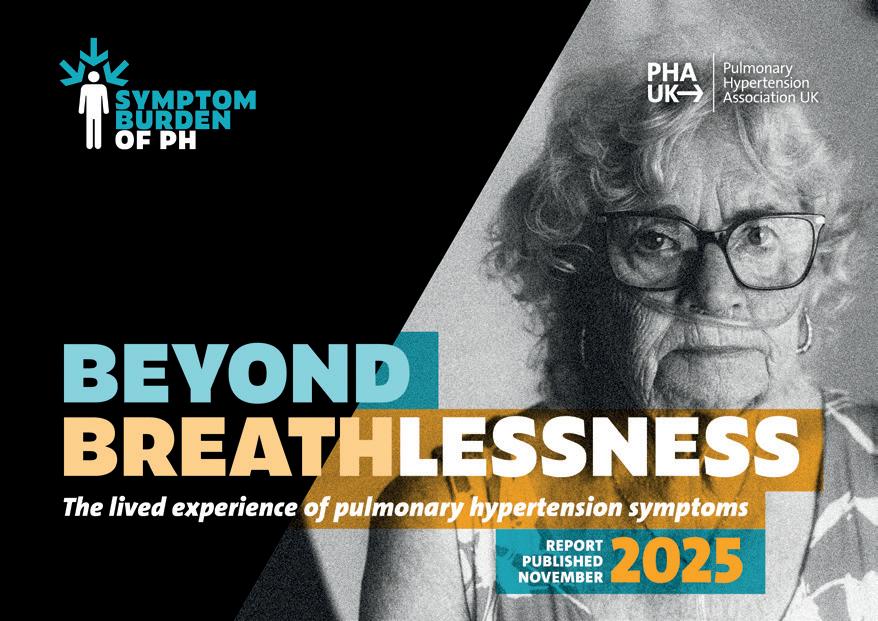BEYOND BREATHLESSNESS
The lived experience of pulmonary hypertension symptoms
REPORT PUBLISHED NOVEMBER 2025
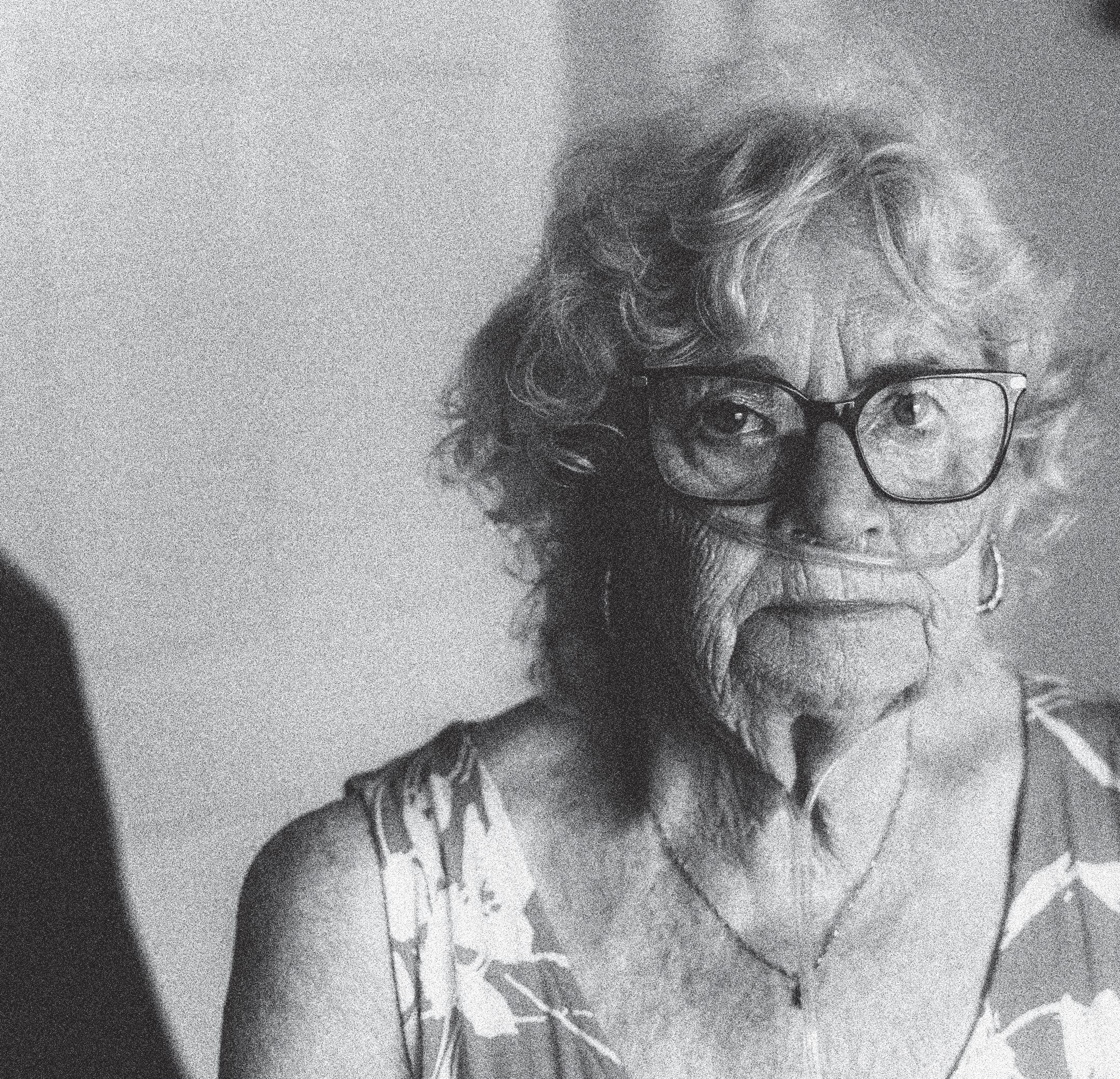
SYMPTOM BURDEN OF PH
Introduction
This real-world study - the first of its kind in the UK - aimed to discover which PH symptoms affect people most, and how lives are impacted by the burden.
While patients in the UK have access to some of the world’s leading treatments, many still face significant challenges in their daily lives. This research aimed to uncover the specific nature of these difficulties and provide a deeper understanding of the disease landscape - drawing directly from patient-reported experiences.
Patients and caregivers were invited to complete separate surveys during March 2025. We received 232 responses from patients, and 35 responses from caregivers.
The surveys were promoted online via PHA UK social media channels and the PHA UK Research Forum – a cohort of patients and caregivers who have agreed to be contacted to take part in research and survey work. Responses were invited from those living in the UK only.

With early analysis showing the prevalence of fatigue and tiredness, these surveys were followed swiftly by a questionnaire aiming to understand how patients decipher the difference between the two symptoms. You’ll find the results of this follow-on survey, which was promoted via the PHA UK Research Forum, on page 18.
This comprehensive report offers a unique perspective on the patient-defined symptom burden of pulmonary hypertension. Through rich, diverse, and deeply personal responses, it reveals the profound impact of PH on individuals and those around them.

CLICK TO WATCH PAULA’S STORY
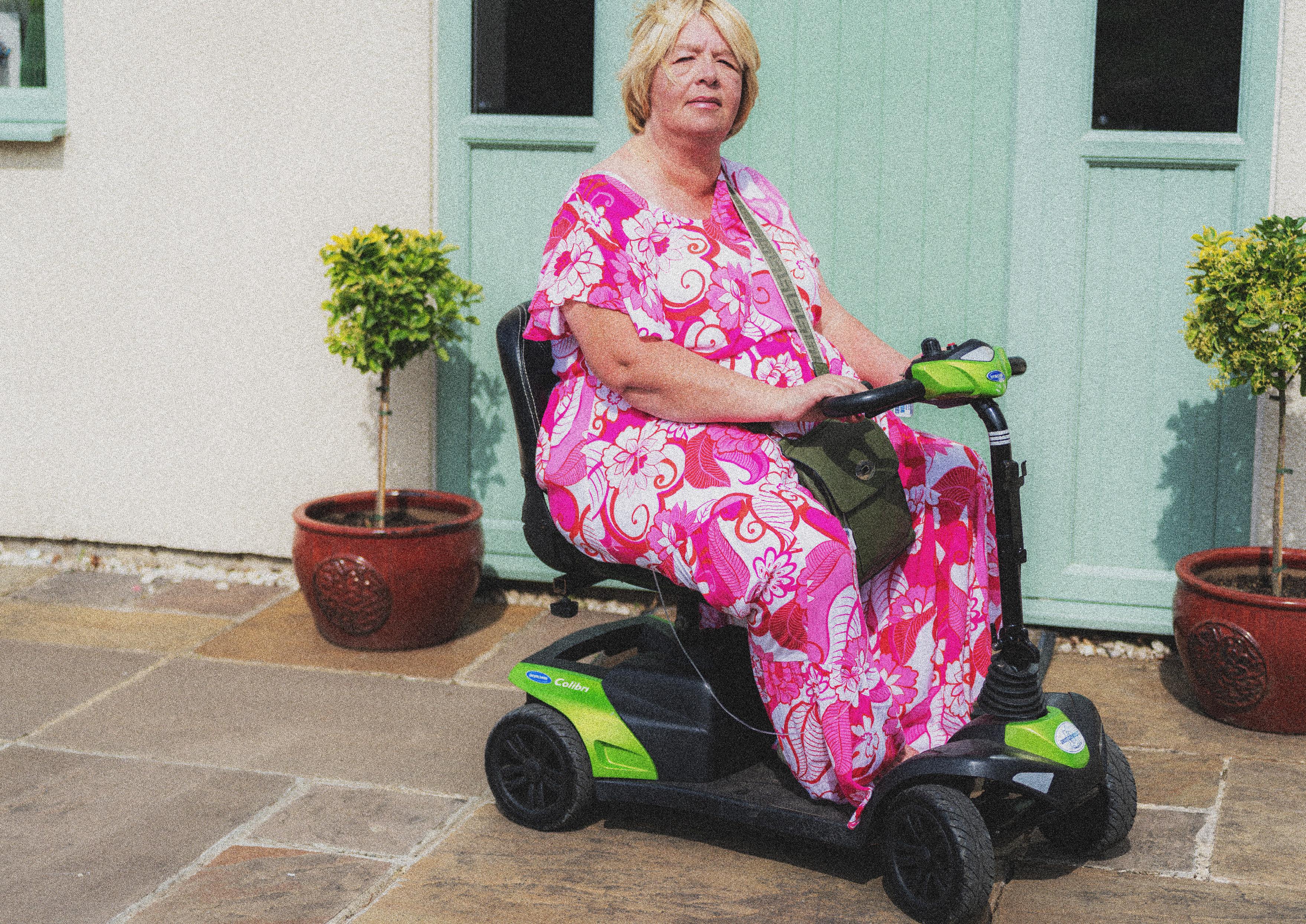
“My symptoms are my life… If I didn’t have them, it would be so different. They’re everything.”
VIEW
About the 232 patients who responded:
50% are aged between 47-70
32% have idiopathic PAH
18% Chronic Thromboembolic Pulmonary Hypertension (CTEPH)
14% Pulmonary Hypertension with Congenital Heart Disease
SYMPTOM BURDEN OF PH
11% Pulmonary Arterial Hypertension with Systemic Scleroderma
9% I don’t know what type of PH I have
6% Pulmonary Hypertension with Lung Disease
6% Heritable Pulmonary Arterial Hypertension
5% Other
57 % have been diagnosed with PH for over 3 years
18% 1-2 years
1% I’m not sure 73% identify as female
14% Less than a year
11% 2-3 years
SYMPTOM BURDEN OF PH
The Findings MOST COMMON SYMPTOMS
BREATHLESSNESS was experienced by...
27% of people at rest
The most common symptoms that patients have experienced over the last year are breathlessness, fatigue, tiredness and sleepiness, and palpitations/ heart flutters.
73% whilst carrying out daily tasks
92% on exertion / exercise
FATIGUE & TIREDNESS was experienced by 85% of people
SLEEPINESS (as a result of poor sleep) was experienced by 56% of people
PALPITATIONS / HEART FLUTTERS were experienced by 54% of people
PATIENT THE VIEW
The Findings
OTHER SYMPTOMS
Chest pain...
15% at rest
15% whilst carrying out daily tasks (such as washing and dressing)
26% on exertion / exercise
7% Blackouts / fainting
42% Dizziness 42% Cough 39% Leg / lower limb swelling
2% None of the above

PATIENT THE VIEW
The Findings
MOST IMPACTFUL SYMPTOMS
The symptoms that have impacted patients the most over the last year are breathlessness, fatigue, and tiredness.
BREATHLESSNESS
64% have been impacted the most by breathlessness on exertion / exercise.
49% have been impacted the most by breathlessness whilst carrying out daily tasks (such as washing and dressing).
FATIGUE & TIREDNESS
59% have been impacted the most by fatigue and tiredness.
VIEW
The Findings COMMENTS...
“I can’t walk around without getting breathless so this has a huge impact on my life.”
“Fatigue is something that I hadn’t expected.”
“My breathlessness affects every aspect of my life.”
SYMPTOM BURDEN OF PH
Patients were asked to describe how their most impactful symptoms affect different aspects of their lives.
Comments include: “I’m constantly trying to hide my breathlessness from people.”
“Being fatigued all the time impacts my daily function.”
“It is unbelievably frustrating not to be able to do simple things like gardening without bringing on palpitations.”
“When you’re forced to sit quiet and recover it gives you more time to worry over your symptoms and sensations.”
“Fatigue really affects my social life with friends and family.”
“Breathlessness is extremely frustrating.”
“[My symptoms] mostly impact my confidence and especially confidence in my autonomy.”
“I feel like I’m missing out on so much because I’m just too tired all the time.”
The Findings
COMMENTS...
“Sleepiness and fatigue regularly affect my mood, energy levels and my performance at work.”
“I get frustrated when I can’t even get washed /dressed without having to rest in between.”
“The palpitations always occur when I’m at rest, they’re quite disconcerting.”
“I feel I am missing out on whatever life I have left because there are things I want to see and do but can’t because I can’t walk to see these places.”
“I am a shadow of my life, utterly breathless.”
“I find breathlessness embarrassing.”
“From being an active person to not being able to breathe or walk or even talk took its toll. I couldn’t laugh at the fear of coughing then having a blackout. PH has changed my life forever.”
“I’m unable to enjoy daily living as I get upset and anxious because of my symptoms.”
“I feel useless and that I am a burden to my husband.”
“Fatigue has left physical impact and persistent tiredness that makes it difficult for me to perform daily tasks.”
SYMPTOM BURDEN OF
PH
“Coughing has disrupted my daily life by causing discomfort, chest pain, or even difficulty speaking or breathing.”
“I constantly feel lethargic and exhausted.”
“The sleep deprivation is like a torture on many days. Heart flutters are erratic and annoying.”
“[My symptoms] are a constant reminder that I’m ‘poorly’ and make me worry and stress that my health is getting worse and I wonder what my future may look like. It’s hard not to live in fear.”
“It is hard to get through a day due to the extreme fatigue. It is also very emotional and psychologically difficult when palpitations happen as you are always worried you will deteriorate.”
The Findings

SYMPTOM BURDEN OF PH
Respondents said weather (extreme cold or heat), stress, and sleep have the biggest impact on the fluctuation of symptoms.
Other factors self-identified as influencing symptoms include:
Activity and exertion levels
Other health conditions
Emotional challenges
Diet and digestion
Infections / viruses
CLICK TO WATCH NORA’S STORY
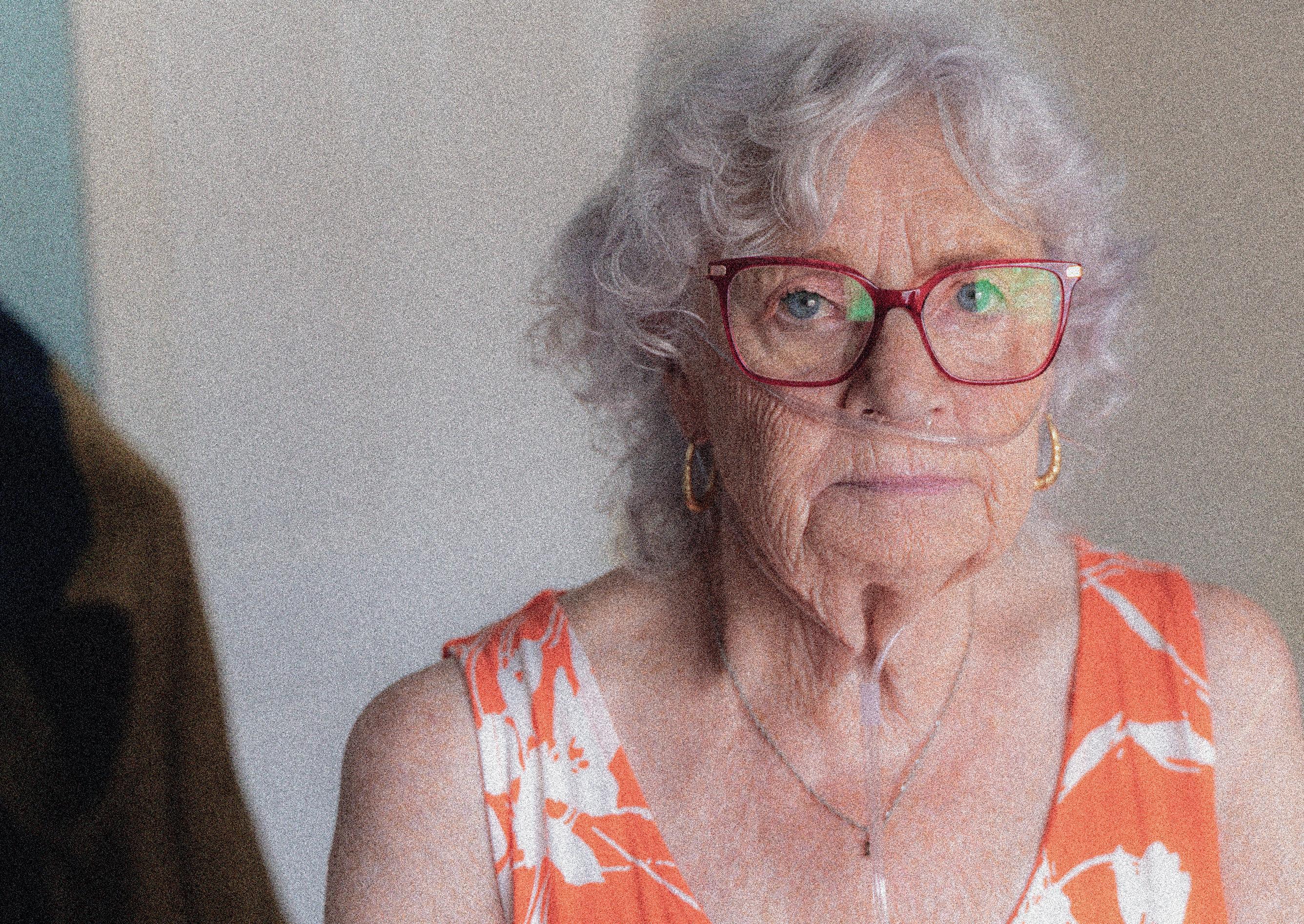
“Losing my independence has been hard to cope with…The symptoms have had a big impact.”
VIEW
About the 35 caregivers who responded:
54% provide care to their spouse or partner with PH
20% provide care to their parent with PH
SYMPTOM BURDEN OF
PH
11% provide care to a child with PH
6% provide care to a sibling with PH
CAREGIVER THE VIEW
The Findings
MOST COMMON SYMPTOMS
The most common symptoms that caregivers have noticed their loved ones have experienced over the last year are
CAREGIVER THE VIEW
The Findings MOST IMPACTFUL SYMPTOMS
The symptoms that caregivers say have impacted their loved ones the most over the last year breathlessness, fatigue, and tiredness.
BREATHLESSNESS
60% said their loved one has been impacted the most by breathlessness whilst carrying out daily tasks (such as washing and dressing).
49% said their loved one has been impacted the most by breathlessness on exertion / exercise.
FATIGUE & TIREDNESS
54% said their loved one has been impacted the most by fatigue and tiredness.
Caregivers said weather (extreme cold or heat), stress, and sleep have the biggest impact on the fluctuation of their loved one’s symptoms.
The Findings CAREGIVER THE VIEW
COMMENTS...
“My husband is increasingly reluctant to leave home.”
“It is the day-to-day variability that most affects us – some days my parent is fine; other days they feel poorly and has to spend most of the day resting.”
“It’s difficult to plan anything in advance as her condition changes daily so we often are restricted by this. We have to cancel plans with friends as her fatigue prevents her from going out.”
“Watching my brother suffering will never leave me.”
“Her condition is affecting her ability to walk to school, so much so that she has to have a taxi which incurs a cost now.”
SYMPTOM BURDEN OF PH
Caregivers were asked to describe how their loved ones most impactful symptoms affect different aspects of their lives. Comments included:
“Completely life changing for both of us. Daily symptoms are debilitating for him and has involved a complete overhaul of our future plans.”
“Mum is now unable to do the smallest things without getting breathless. When walking from the bedroom to the bathroom she’s is breathless. Walking to the stairlift she is breathless.”
“As my dad would say he’s not living a life anymore he is trying to survive.”
“He is at the stage of feeling there’s no point going out as he feels so unwell on his return.”
“Limb swelling makes her feel self-conscious. Using a lift dedicated to the disabled can be embarrassing as she looks ‘normal’ and can get us ‘looks’ from elderly people or people visibly disabled.”
“My sister is in hospital now with fluid retention and is quite poorly. Prior to this she was so frustrated she could no longer really do anything. Now she is so down. I just feel so helpless and sad.”
CLICK TO WATCH JAYNE’S STORY
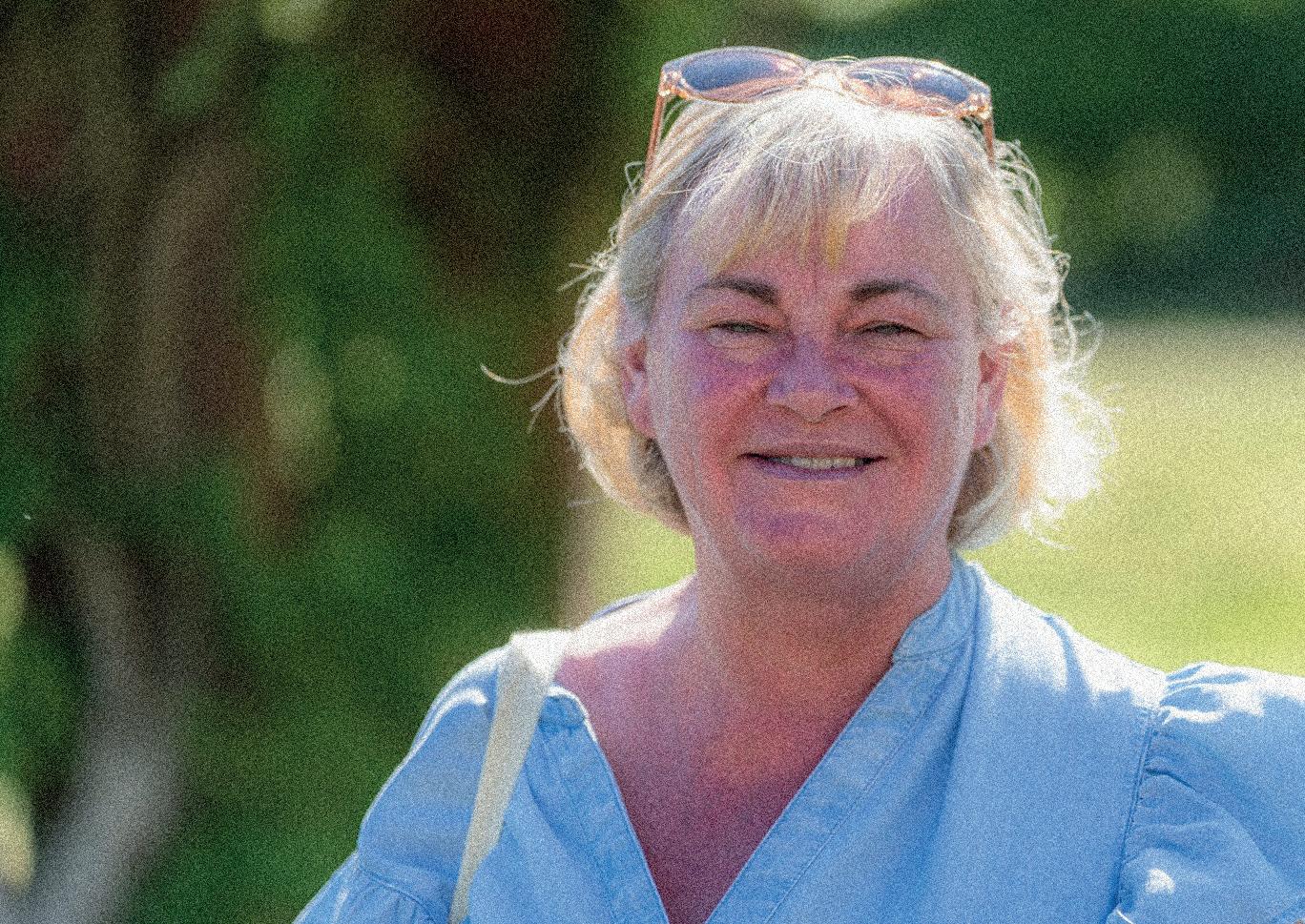
“The fatigue comes over you like a blanket… It’s all-encompassing and you literally cannot move.”
DEFINING TIREDNESS AND FATIGUE
How patients decipher between the two symptoms
This questionnaire was promoted following the symptom burden survey, with 39 responses received.
“Brain fog, unable to concentrate, feeling overwhelmed.”
“Tiredness for me feels like a lack of energy, feeling lethargic and feeling sleepy.”
“Lacking the will to proceed with a task but still doing it.”
SYMPTOM BURDEN OF PH
Patients were asked to describe TIREDNESS, and what it feels like for them. Comments included: TIREDNESS...
“All enveloping at times.”
“Lack
of energy, weary.”
“Brain fog, everything aching, lack of concentration, difficult to focus, lack of energy.”
“I would describe tiredness as needing sleep or a long rest to recharge your batteries.”
“Sleepiness, drowsiness, unable to keep my eyes open, overwhelming urge to go to sleep, feeling worn out and exhausted.”
“Like
a very low battery on a phone.”
DEFINING TIREDNESS AND FATIGUE
How patients decipher between the two symptoms
FATIGUE...
Patients were asked to describe FATIGUE, and what it feels like for them.
Comments included:
“Complete whole body exhaustion, lassitude, aching body which feels really heavy, fuzzy brain/inability to focus or concentrated. Too weary/spent to function properly.”
“Fatigue for me feels like a swift draining of energy, my body feeling very heavy and weak, body aches, tender skin and the need rather than the want to sleep.”
“As though the lights are dimming and I could just switch off.”
“Fatigue I would describe as feeling a crushing heaviness in the chest that sucks out all your energy.”
“Feeling heavy, just wanting to sit or lay down.”
“It feels like being hit with a sledge hammer and still having to do all the things people expected of you.”
“Fatigue is more “in your bones”. You constantly feel a little tired and you lack energy. Sleep doesn’t resolve it as it goes right down to your core.”
“A never ending drain on the last bit of energy you have. I can’t even muster together the strength to even blink or talk, it’s like my body physically and mentally shuts down.”
SYMPTOM BURDEN OF PH
“I feel like there’s a fog or cotton wool in my brain.”
“For me it’s a never ending lack of energy where functioning is limited to short bursts of barely surviving and long bouts of thinking about how to get the jobs done that I have to do but know I can’t do without help.”
“A feeling of wanting to withdraw from things.”
“A feeling of extreme and persistent weakness / no strength.”
“No energy left. Weak body. Unable to move. Heavy limbs. Continuous. Rarely improves.”
“Block headaches, heaviness of the body and very low energy.”
DEFINING TIREDNESS AND FATIGUE
How patients decipher between the two symptoms
THE DIFFERENCES...
Patients were asked to describe the KEY
DIFFERENCES BETWEEN TIREDNESS AND FATIGUE.
Responses included:
“Tiredness is more sleep based, fatigue is a whole body exhaustion.”
“Tiredness is an everyday daily struggle and fatigue is its master!”
“Tiredness more temporary but fatigue more persistent and debilitating.”
SYMPTOM BURDEN OF PH
“The two feelings can overlap, but I believe that tiredness can be brought on due to mental stress caused by fatigue.”
“Tiredness can normally be alleviated by sleep and rest. Fatigue is more long-lasting and cannot be cured by sleep.”
“I don’t have tiredness, I have fatigue which is a whole new ball game. Tired is after a heavy day at work, burning the candle at both ends (which I used to do in my 20’s). PH is way beyond tiredness.”
“With tiredness you can still function, but struggle to motivate or do anything for too long. However when fatigue hits you just can’t function in any way.”
“Fatigue tends to arrive mostly unannounced whereas tiredness creeps up on you as the day goes on.”
“Fatigue is a cause of tiredness and vice versa. They are so closely linked it’s difficult to differentiate.”
“Tiredness is more brain and fatigue body.”
“Tiredness for me is just a lack of sleep but fatigue is when everything I try to do is exhausting. Even trying to chew food is incredibly difficult due to the effort of doing so.”
“Tiredness can be fought off, fatigue can’t.”
“Fatigue has extreme symptoms and is like a build up of tiredness.”
“Tiredness lets you do a limited amount, it catches up with you. Fatigue is like wearing a old fashioned diving suit that engulfs you and makes everything an effort.”
CLICK TO WATCH EMILY’S STORY

“I find breathlessness stops me doing as much as other people… I have to take a lot of extra precautions with PH.”
MEASURING FATIGUE
THE FATIGUE SEVERITY SCALE
Those who responded to the Defining tiredness and fatigue survey were also asked to answer the 9 questions that make up the ‘Fatigue Severity Scale’. This is a patient-reported outcome measure used in clinical care (in many disease areas, but not in PH) to assess fatigue as a symptom of chronic illness.
Respondents were asked to consider their usual way of life within the last week, and then select the number between 1 and 7 which they feel best fits the statements.
1 = Strongly disagree
7 = Strongly agree
My motivation is lower when I am fatigued
Fatigue causes frequent problems for me
Fatigue interferes with carrying out certain duties and responsibilities
A CREATIVE INTERPRETATION OF THE FINDINGS
The responses around fatigue and tiredness
inspired PHA UK Chair Dr Iain Armstrong to write this poem, encapsulating the experiences described in the survey comments.
The Silence That Speaks
By Dr Iain Armstrong
Fatigue is not just tired.
It is the weight of every step that used to be easy.

It is the fog that settles not just in the body, but in the mind, in the heart.
It is the silence after trying, the ache of being seen but not understood.
It is the pause before parenting, the breath before pretending, the rest that never quite restores.
Not fast, not loud, but deliberate.
There is planning, pacing, a quiet kind of courage that says: I will still show up.
There is joy, redefined. In small walks, in soft mornings, in stories shared so others might feel less alone. This is not weakness.
This is strength, worn and weathered, but still here.
SYMPTOM BURDEN OF PH

ANALYSIS AND CONCLUSION
In summary, the findings of the surveys in this study show:
This study has put the debilitating nature of pulmonary hypertension symptoms firmly under the spotlight. UK patients in this disease area receive the best treatments in the world – yet they are still severely impacted.
It is well-known that breathlessness is a huge burden of PH, and this is treated as part of clinical care. However, fatigue, which is often overlooked in terms of treatment priority, was described by patients as a severe and persistent symptom. This study provides strong, real-world evidence that clinical prioritisation needs to reflect this.
Tiredness and fatigue are often grouped together as symptoms, but the results of this study show they are viewed by patients as two different and separate experiences. Tiredness is viewed as a symptom that can be eased by sleep, whilst fatigue has no ‘solution’. Tiredness is perceived as an acute problem, whilst fatigue is chronic and disabling. The responses to the Fatigue Severity Scale reinforce the qualitative statements and provide further evidence of the impact of the symptom.
SYMPTOM BURDEN OF PH
SYMPTOM BURDEN OF PH
Fatigue and tiredness are as burdensome as breathlessness
Caregiver insights reinforce and validate the patientreported impact of symptoms

Experiencing multiple symptoms (‘symptom clusters’) amplifies distress, especially when they persist and interact
AND CONCLUSION
The findings of this study reinforce the importance of the use of patient-reported outcomes measures (PROMS) in routine clinical care and in research. They strengthen the case for tools that are co-created, nuanced, and multidimensional.
PROMS are short questionnaires, filled in by patients, that generate a score – and this is used to help guide decisions about care.
PROMS that measure symptom burden make invisible suffering visible, and it must always be remembered that behind every score is a human story.




ANALYSIS AND CONCLUSION
The findings of this study will be used to elevate the voices that too often go unheard.
Further analysis of the results is taking place, including mapping against other studies and the identification of themes.
These illuminating findings will be shared with healthcare teams, service providers, commissioners, and the pharmaceutical industry too. Opportunities will also be sought to present them internationally. They will be used to help guide the PHA UK to provide support to the PH community in the most effective ways. They will add to the evidence base used in drug access work, highlighting why more effective treatments are needed.
SYMPTOM BURDEN OF PH
SYMPTOM BURDEN OF PH
ANALYSIS AND CONCLUSION
People living with pulmonary hypertension know what it means to carry a condition that’s invisible to most, but life-altering every day. Even with treatment, many remain breathless, exhausted, and emotionally stretched - navigating a world that doesn’t always see their struggle. Through patient-led mapping of symptoms and personal reflections, we’ve heard stories of lost independence, altered identity, and quiet resilience These voices reveal a reality that clinical data alone cannot capture. Yet too often, lived experience is welcomed emotionally but not recognised as knowledge.
That’s not just unfair - it’s a form of injustice. At the PHA UK we believe the patient voice should shape decisions, not just echo around them. In rare and complex conditions like PH, lived experience isn’t an add-on - it’s the foundation for understanding what matters most. SYMPTOM
breathlessness,fatigue,tiredness.
ANALYSIS AND CONCLUSION
“This is a really powerful piece of research. Drawing on lived experience, patients described fatigue, breathlessness, and palpitations not only as physical symptoms, but as forces that reshape daily life, erode confidence, and fracture identity. The emotional toll was palpable in the comments provided within the survey responses.
The findings of this research show the vital importance of measuring the symptom burden of PH – and the specialist services in the UK need to listen. If we don’t measure symptom burden, we can’t see it. If we can’t see it, we miss it. And if we miss it, we fail to respond. Symptom burden is where change is felt and where suffering is named – and it is where care must respond.”
SYMPTOM BURDEN OF PH
SYMPTOM BURDEN OF PH
Dr Iain Armstrong PHA UK Chair and Consultant Nurse in PH
We are grateful to everyone who responded to this important survey. The symptoms of PH go beyond breathlessness – and the experiences shared will make a difference where it really matters.


If you have any questions about this report, please scan the code or email
hello@phauk.org
www.phauk.org
